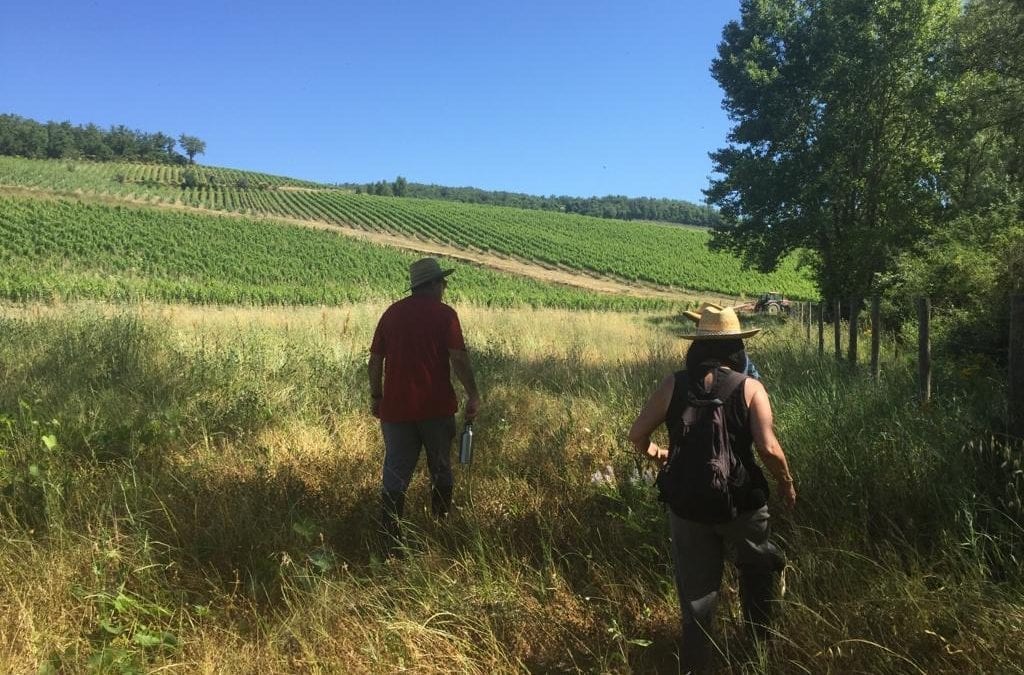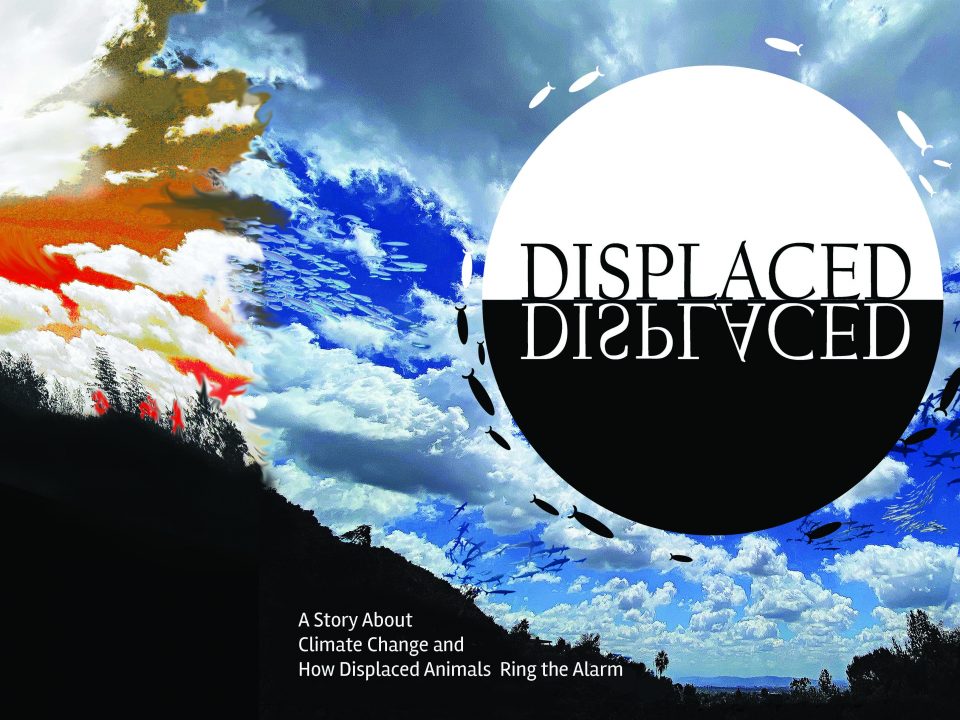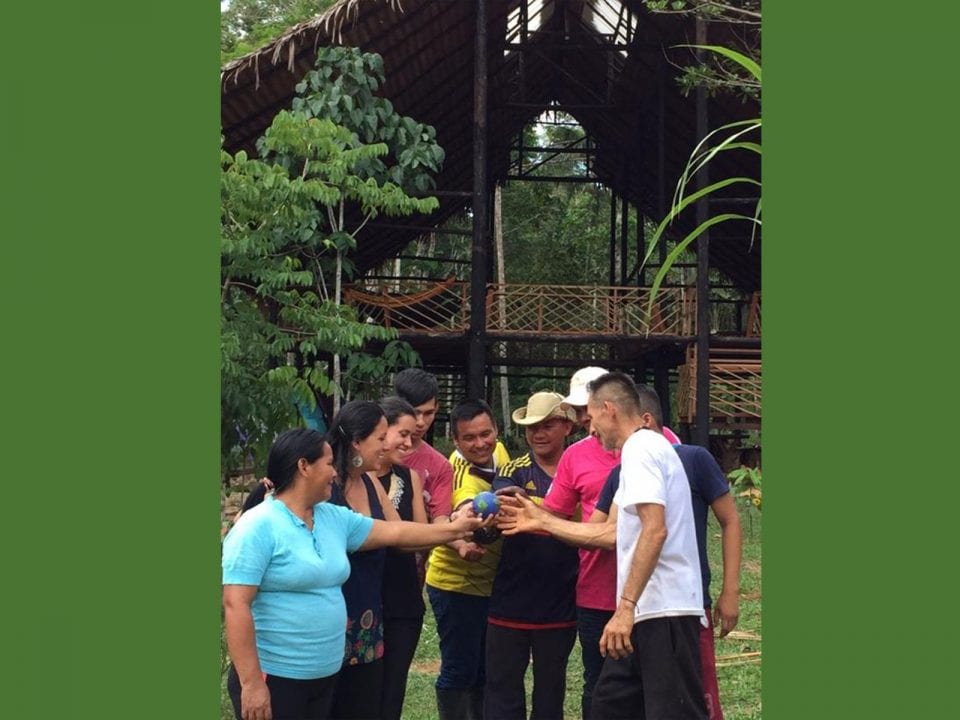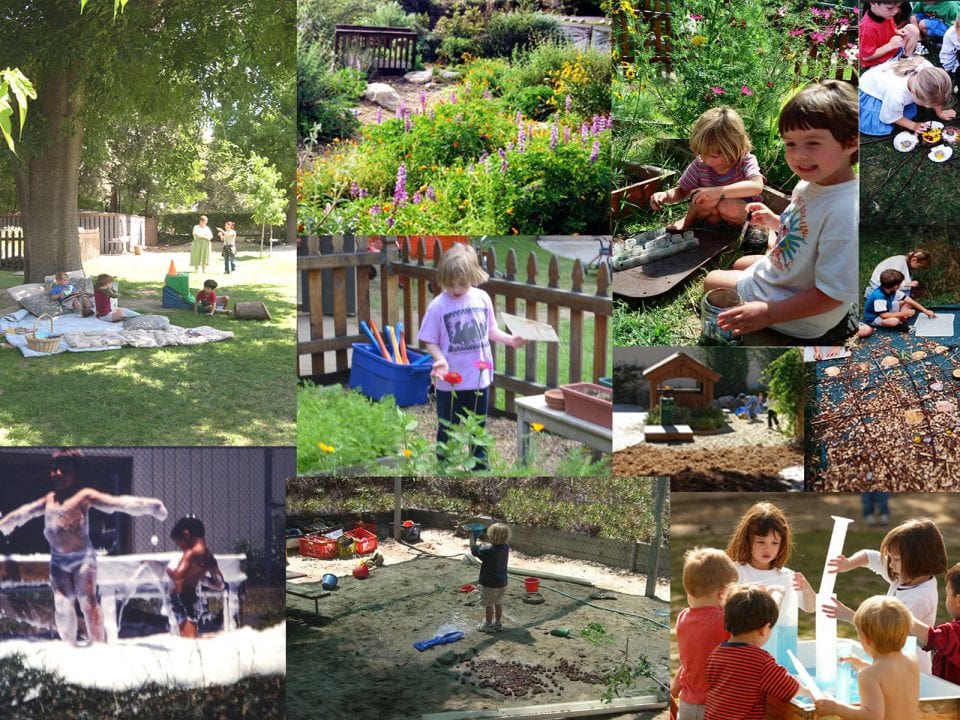- Did you receive a globe? Congratulations! Click Here for the Next Step!

Time to take the bikes out!
July 31, 2019
Handcrafts to Reuse Plastic Bags and Reduce Pollution
August 4, 2019Sustainability in Italy
“Due sono le funzioni principali della vita: la nutrizione e la propagazione della specie.”
– Pellegrino Artusi
“Ciao, sono Aria, una curiosità? Sono una vegetariana che adora la trippa.” Hi, I’m Aria, something unique about me? I’m a vegetarian who loves tripe. This is how I introduced myself last month in front of my students – sixteen college students from Southern Methodist University in Dallas, Texas – to their language exchange partners in Florence, Italy, where we have spent the last five weeks. I carried “Aurora” with me from Dallas, Texas to Italy, along with my four-year-old daughter, my parents, my husband (also a faculty member at SMU), and my students.
Our adventure started at Dr. Nora Kravis’s Cashmere goat farm (Chianti Cashmere Goat Farm) just outside of Radda in Chianti. With “Adopt-a-Kid” and “Shepherd for a Day” programs, Nora’s farm encourages a “diversified, sustainable, ethically correct livestock scheme with innovative alternatives for communities, for reclaiming abandoned farmland, to create local jobs and income in rural communities.” After trying our hands at shepherding, we joined a group of travelers with kmzerotours (a small sustainable travel company based in the Chianti) for an amazing local lunch in Nora’s garden. I hope to return soon (and to be able to adopt one of her goats!).
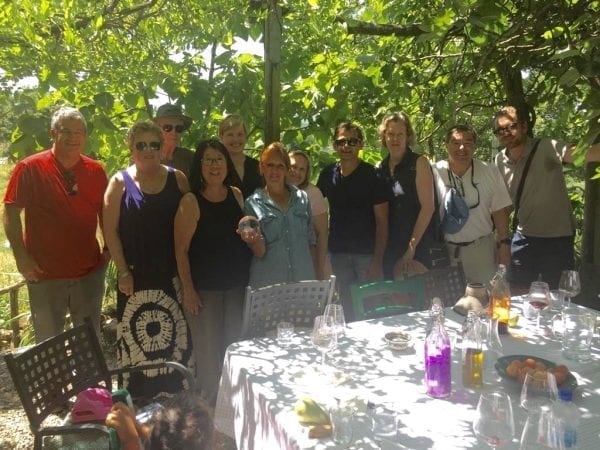
Lunch with Aurora 17 at the Chianti Cashmere Goat Farm
Our trip continued with a visit to the Antica Macelleria Cecchini, the world-famous butcher shop run by Dario Cecchini, veterinary-student-turned-butcher whose commitment to local, sustainable production and consumption gained renown thanks to his appearances in Anthony Bourdain’s No Reservations and, more recently, the Netlix series Chef’s Table. I was the sole vegetarian of the group, but we all deeply appreciated Dario’s kindness and commitment to zero waste and maximum respect for land, life, nutrition, and conviviality.
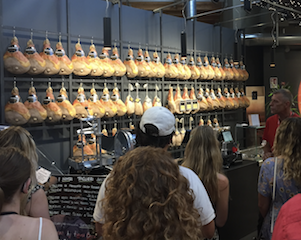
SMU students learn about prosciutto production at FICO
Finally, in mid-July, we brought our 16 students to FICO (Fabbrica Italiana Contadina) Eataly World, just outside of Bologna. The world’s largest food park, the FICO is comprised of 100,000 square meters of land, 40 farming factories, shops, classrooms, and restaurants, and more than 200 animals and 2000 plant varieties. After our tour guide showed us how meat, fish, cheese, pasta, oil, beer, wine, chocolate, and many other local products are processed, we were able to sample fresh cheese and pasta and take a sorbetto class. One of our students, an ethical vegetarian unprepared to encounter meat-processing factories and farm animals, took me aside to say that if she had known where we were going, she would have chosen not to come. Overcome with guilt, I apologized and told her that I was also a vegetarian with many concerns: Can we continue to produce and eat meat on a large scale? What are the consequences of eating meat in today’s society? What are the risks? And yet I strongly believe that FICO is also raising those questions with the most serious of intentions with regard to the ethical and economical concerns of being a carnivore today. Eataly will be coming to Dallas in 2020, so it was important for me to pose the question – to myself, my family, and my students – of what it means to support “glocal” production. What can we eat and drink in good faith to preserve what Pellegrino Artusi defined as the two principal functions of modern life – nutrition and the propagation of living beings?
I don’t have any answers, but feel fortunate to have “carried the earth” with my students to Italy this summer, where it seems that many, many individuals are asking the right questions.

